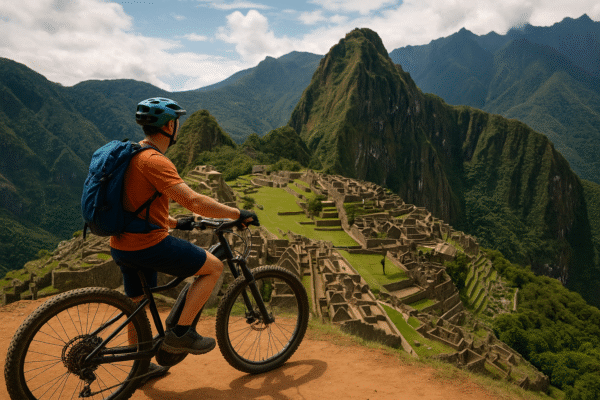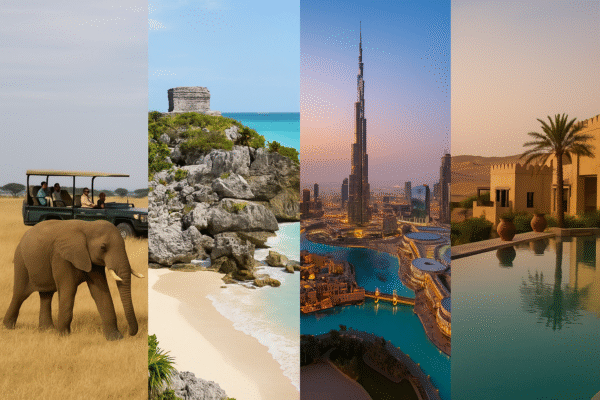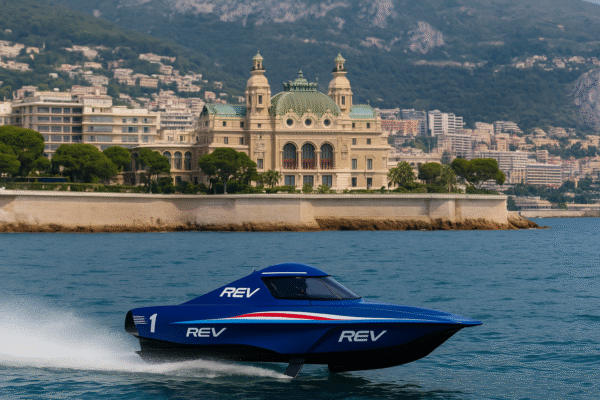Pedaling Toward Sustainability: E-Bike Tourism Accelerates Across Peru, Vietnam, Costa Rica, Jordan, and Italy in 2025
A quiet revolution is reshaping global adventure travel — and it hums, rather than roars. In 2025, countries like Peru, Vietnam, Costa Rica, Jordan, and Italy are embracing e-bike tourism as a dynamic, sustainable, and inclusive way to explore epic terrain once accessible only to seasoned athletes or hardcore trekkers.
The surge is largely driven by UK-based operator Much Better Adventures, which has launched new e-bike itineraries across 14 countries. These tours aim to blend cultural immersion, environmental stewardship, and accessibility, all while retaining the adrenaline and authenticity that define adventure travel.
E-Bikes Bridge the Gap Between Challenge and Accessibility
E-bikes — or electric-assist bicycles — are transforming how travelers engage with destinations. According to global tourism data, UK search interest in e-bikes jumped 29% over the past year, with a 17% rise globally. For many, e-biking is not about making things easier, but about making experiences possible — from high-mountain switchbacks to rainforest paths that were once too arduous for the average traveler.
“In 2025, we’re seeing a shift from passive sightseeing to active immersion,” said Vicky Leach, Adventure Expansion Manager at Much Better Adventures. “E-bike tourism enables deeper travel, connecting people not just to the land but also to the people who live on it.”
Destination Spotlight: Five Iconic Countries Leading the Charge
Peru
Riders journey through the Sacred Valley, winding past UNESCO-listed Machu Picchu, Incan archaeological sites like Sacsayhuamán, and vibrant Andean markets. With pedal assist, even the steepest climbs are within reach, and local communities benefit through home-based tourism initiatives, from textile co-ops to artisan bakeries.
Vietnam
New e-bike trails in the Ha Giang and Lao Cai provinces are opening up northern Vietnam’s rugged highlands, including the famed Heaven’s Gate Pass. Cyclists experience rice terraces, ethnic minority villages, and karst peaks — all with minimal environmental impact. Vietnamese authorities are also investing in bike-friendly infrastructure, ensuring both safety and sustainability.
Costa Rica
Cross-country tours now connect the Caribbean and Pacific coasts, meandering through national parks, coffee plantations, and volcanic rainforests teeming with biodiversity. E-bikes provide a low-impact alternative to vehicle-heavy tours while promoting eco-lodging and solar charging stations supported by the Costa Rican Tourism Board.
Jordan
The Jordan Trail now accommodates e-bike adventurers from Wadi Rum to the ancient city of Petra. Visitors pedal past mountain fortresses and Bedouin encampments, supported by the Ministry of Tourism’s new route signage, digital maps, and local guide certification programs aimed at boosting rural employment.
Italy
Already a pioneer in e-bike experiences, Italy’s 2025 itineraries now emphasize agritourism, with routes through Tuscany, Umbria, and Piedmont. Cyclists enjoy farm-to-table dining, vineyard stops, and artisan visits, creating a culinary cycling experience that boosts local economies while encouraging low-emission travel.
Sustainability in Motion: Government Support and Green Infrastructure
Governments across these nations are now aligning their national tourism strategies with the e-bike movement. From solar-powered charging stations in Costa Rica to last-mile bike trail links in Italy, infrastructure is catching up with demand.
In Jordan, trail development is funded in part by the Jordan Tourism Board’s Sustainable Tourism Program, while Vietnam’s Ministry of Culture, Sports and Tourism is coordinating with local provinces to map out new low-traffic cycling corridors.
These changes respond to growing consumer demand for climate-conscious travel, as well as the need to distribute tourism more evenly across rural regions. E-bikers move slower, stop more often, and spend more locally — a win-win for both preservation and community livelihoods.
A New Model for Experiential Tourism
What sets e-bike tourism apart is its ability to deliver emotional and environmental impact. Whether it’s sharing mint tea with a Berber family in Jordan, or pausing on a quiet ridge overlooking a Peruvian glacier, the intimate, contemplative nature of e-biking adds depth to the journey.
These tours also promote intergenerational participation, with travelers of all ages and fitness levels able to ride together. It’s not uncommon to see grandparents cycling alongside teenagers, united by curiosity, not competition.
“The freedom to travel deeper,” Leach emphasizes, “is about removing barriers — not the adventure itself.”
Economic Uplift Through Local Integration
E-bike tourism is quickly becoming a pillar of rural development. In Cusco and the Sacred Valley, for instance, village shops now thrive on the steady arrival of e-bike riders who prefer slow, scenic routes over express buses. In Vietnam, e-bike tours are tied to homestays and traditional craft villages, providing alternative income streams to agricultural communities.
The Costa Rican Tourism Institute has highlighted e-bike travel as a key strategy in its National Decarbonization Plan, aiming to reduce vehicle-based tourism emissions while supporting community-owned ecotourism businesses.
What’s Next for E-Bike Tourism in 2025 and Beyond?
According to the Adventure Travel Trade Association, e-bike tourism ranks among the top five global adventure travel trends for 2025. The movement supports climate goals, social inclusion, and cultural preservation, while offering a richer, more reflective form of travel.
Much Better Adventures’ expansion signals that e-biking is no longer niche — it’s a growing force that may define how we travel responsibly in a post-pandemic, climate-conscious world.
Final Thoughts: Reimagining Exploration
The gentle whir of an e-bike motor now accompanies travelers through the most iconic landscapes on Earth — from Machu Picchu’s misty ascent to Vietnam’s terraced hills, Jordan’s desert citadels, Costa Rica’s cloud forests, and Italy’s rolling vineyards.
More than a vehicle, the e-bike is fast becoming a symbol of possibility — of journeys made inclusive, sustainable, and soulfully immersive. In 2025, adventure is not about conquering nature, but about meeting it — thoughtfully, joyfully, and on two wheels.
For more travel news like this, keep reading Global Travel Wire






















